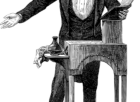George Orwell books have long been regarded as some of the most influential and thought-provoking works in the literary world

With his keen observation and sharp critique of political ideologies and social structures, Orwell’s books continue to captivate readers and offer insights into the human condition. In this article, we will delve into the fascinating world of George Orwell books, exploring their importance and evolution over time.
Introduction to George Orwell Books
George Orwell, born Eric Arthur Blair, was an English novelist, essayist, and critic who lived from 1903 to 1950. He is best known for his dystopian novels, Animal Farm and Nineteen Eighty-Four, which have become classics of modern literature. Orwell’s works often explore themes of totalitarianism, political corruption, and the dangers of authoritarian rule.
What sets Orwell’s books apart is his ability to create realistic and relatable characters within oppressive societies. His writing style is characterized by its simplicity and clarity, making his novels accessible to a wide range of readers. Orwell’s books resonate with audiences due to their universal themes and cautionary messages about power and control.
Historical Overview of George Orwell Books

Orwell’s literary journey began in the 1930s with books such as Down and Out in Paris and London and The Road to Wigan Pier. These works focused on his experiences of poverty and social injustice, highlighting the plight of the working class. Orwell’s early books provided a glimpse into his socio-political concerns and laid the foundation for his later works.
In 1945, Orwell published Animal Farm, a political allegory that critiqued the Soviet Union under Stalin’s rule. The book exemplified Orwell’s ability to convey complex ideas through simple and engaging storytelling. Animal Farm quickly gained popularity and became a critical success, establishing Orwell as a prominent voice of his time.
Orwell’s most renowned work, Nineteen Eighty-Four, was published in 1949. This dystopian novel depicted a future society ruled by a totalitarian regime, where individuality and freedom of thought are suppressed. The concept of Big Brother, surveillance, and the manipulation of truth have since become deeply ingrained in popular culture.
Both Animal Farm and Nineteen Eighty-Four remain relevant today, as their themes continue to resonate in an era of advancing technology and increasing government surveillance. These novels serve as cautionary tales, warning against the dangers of unchecked power and the erosion of individual liberties.
Impact and Legacy of George Orwell Books
The impact of George Orwell books extends far beyond the literary realm. His works have influenced political discussions, challenged dominant ideologies, and sparked debates about the nature of power and authority. Orwell’s insightful critique of totalitarianism has shaped the way we analyze political systems and recognize the potential dangers they present.
Moreover, Orwell’s mastery of language and storytelling techniques has inspired generations of writers and artists. His ability to convey complex ideas in a straightforward manner has become a hallmark of effective communication. Orwell’s books continue to be studied in schools and universities, offering valuable insights into the human condition and the power dynamics that shape society.
In conclusion, George Orwell books hold a crucial place in the literary canon. Their enduring relevance and profound impact make them essential reads for anyone interested in understanding the complexities of political systems and the consequences of unchecked power. Orwell’s ability to create compelling stories with timeless messages ensures that his works will continue to resonate with audiences for generations to come.
Bulletpoints:
– George Orwell books offer profound insights into political ideologies and social structures.
– Orwell’s writing style is characterized by simplicity and clarity, making his books accessible to a wide range of readers.
– His early works focused on poverty and social injustice, while his later novels explored themes of totalitarianism and political corruption.
– Animal Farm and Nineteen Eighty-Four are Orwell’s most renowned works, critically examining the dangers of authoritarian rule.
– Orwell’s books continue to be influential, shaping political discussions and inspiring artists and writers.
– Animal Farm and Nineteen Eighty-Four remain relevant in the present era of increasing government surveillance and threats to individual freedoms.
Exploring the Impact and Evolution of George Orwell Books
Introduction to George Orwell Books
Historical Overview of George Orwell Books
Impact and Legacy of George Orwell Books











